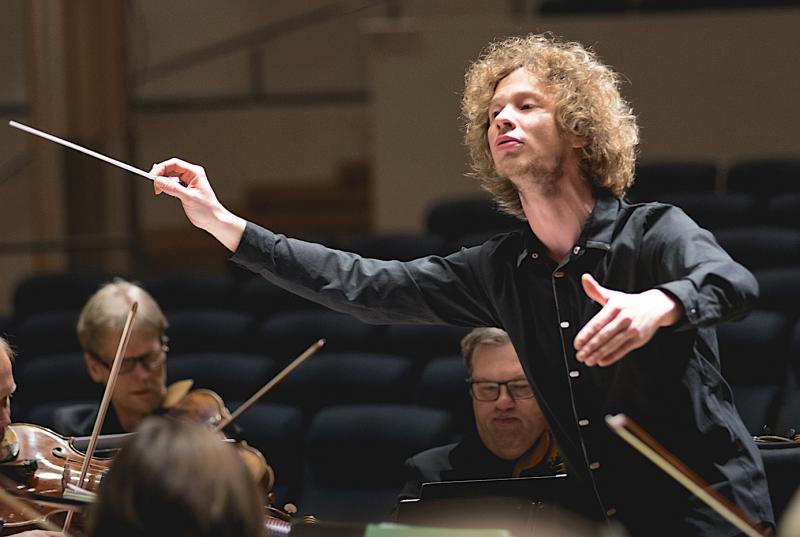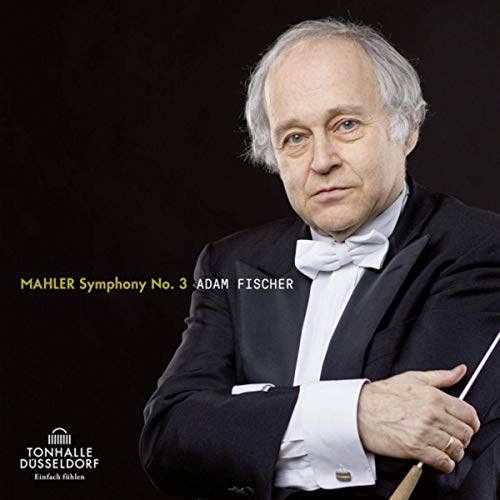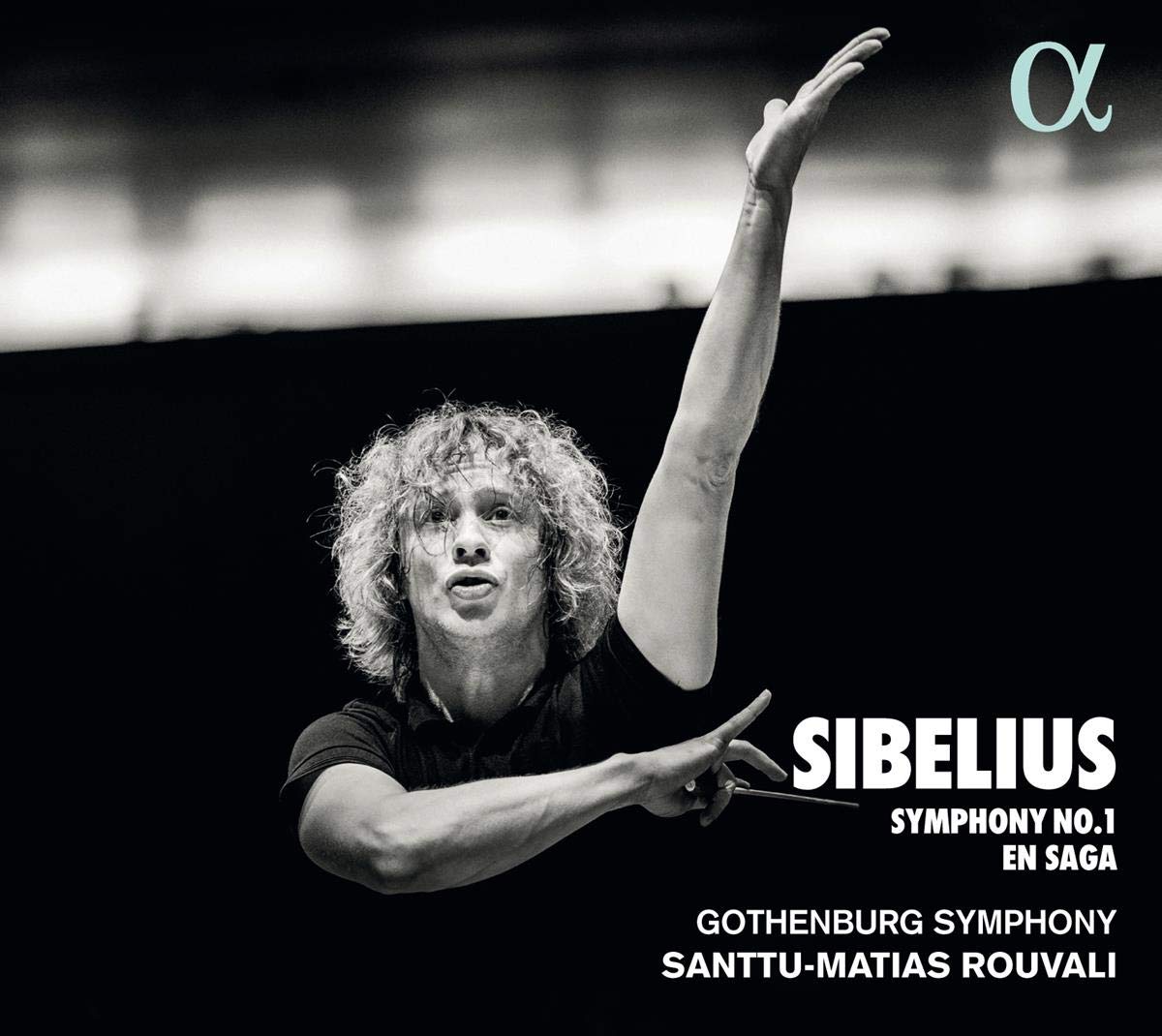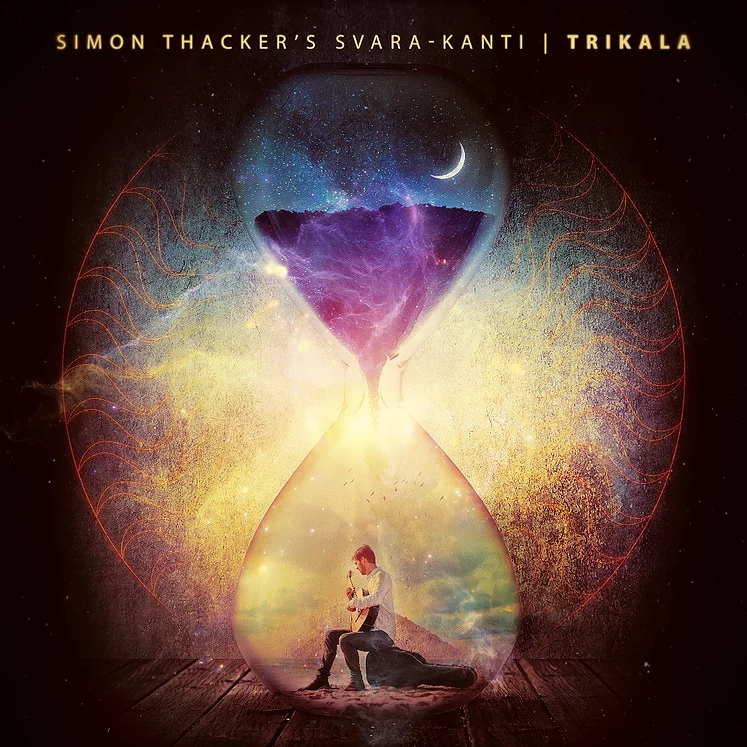Classical CDs Weekly: Mahler, Sibelius, Simon Thacker's Svara-Kanti | reviews, news & interviews
Classical CDs Weekly: Mahler, Sibelius, Simon Thacker's Svara-Kanti
Classical CDs Weekly: Mahler, Sibelius, Simon Thacker's Svara-Kanti
Two romantic symphonies, plus a Scots guitarist venturing east

 Mahler: Symphony No 3 Düsseldorfer Symphoniker/Adam Fischer, with Anna Larsson (alto) (Tonhalle Düsseldorf)
Mahler: Symphony No 3 Düsseldorfer Symphoniker/Adam Fischer, with Anna Larsson (alto) (Tonhalle Düsseldorf)
Mahler's vast Symphony No 3 is his longest and most ungainly on paper, but on record it’s one of the easiest to get right. At least I can't think of many dud performances. This huge, six-movement work is relatively easy to follow – a picaresque, picturesque journey from murky uncertainty to radiant positivity. Adam Fischer gets pretty much everything right in this compelling live performance from his Düsseldorfer Symphoniker, one of Germany’s oldest orchestras but one not well represented on disc. Brother Ivan’s Budapest reading is good, but this one has a touch more excitement and volatility. My ears pricked up at the crisp side drum accompanying the horns’ opening fanfare, the ensuing representation of primeval chaos like wading through a swamp. It's wonderfully atmospheric, and I envy anyone discovering this music for the first time. That unhinged trombone solo! And how Mahler depicts spring’s arrival with the jauntiest of marches. You’ll get a measure of this performance’s virtues 19 minutes into the first movement: solo violin and principal horn leading us into a brief, ecstatic reverie. It's gorgeous here, one of the sweetest, cuddliest moments in all Mahler. The playing has so much character, Fischer writing in the booklet that he'd rather his players be “not exactly together” than too timid.
Subsequent movements don't disappoint. The scherzo's offstage posthorn is well placed, and you can really hear the harp in the great outburst that crowns the movement. Alto Anna Larsson is outstanding in the “Sehr langsam”, Fischer following other recent interpretations in having his oboist slur the bird calls – a deliciously unsettling effect. Bimms and bamms are provided, handsomely, by the Clara-Schumann Youth Choir and the Düsseldorf Municipal Music Society. Fischer's slow finale is flowing but heartfelt. Exceptionally good: I’m now on a mission to hear the earlier volumes in the series.
 Sibelius: Symphony No 1, En Saga Gothenberg Symphony Orchestra/Santuu-Matias Rouvali (Alpha)
Sibelius: Symphony No 1, En Saga Gothenberg Symphony Orchestra/Santuu-Matias Rouvali (Alpha)
Epic Mahler isn't to everyone's tastes, and you might be tempted to cool down with a bit of Sibelius instead. Though his Symphony No 1 is another hot-headed, romantic work, and Santuu-Matias Rouvali’s new account looks on paper as if it's one of the slower, more indulgent ones. This isn't the case, the timings merely reflecting Rouvali's flexible tempi. The lonely clarinet solo is daringly spacious, though the movement's main body is perfectly paced. Rouvali’s love for the music never smothers it, the occasional expressive tweaks perfectly judged, such as the snarling, swelling brass chords at two minutes 40. Not sure if they're marked to be played like that in the score, but the effect is thrilling. He also underlines how many elements of Sibelius's mature music are already present in this early masterpiece: sustained pedal notes and woodwinds in thirds are all here. And how Rouvali handles the movement’s coda. I consulted my thesaurus but couldn't come up with anything more apposite than “sizzling”. It's that sort of performance.
The storm whipped up in the slow movement rivals that in Tapiola. There's more sizzling in the scherzo, and the sprawling finale doesn’t feel a note too long. As a coupling, there's a brassy, extrovert performance of En Saga, every bit as gripping as the symphony. Unmissable, and the best Sibelius recording I've heard in ages. You'll think so too. The cover photo is priceless.
 Simon Thacker’s Svara-Kanti: Trikala (Slap The Moon Records)
Simon Thacker’s Svara-Kanti: Trikala (Slap The Moon Records)
Mashups between contrasting musical cultures are a black art. André Previn’s LSO collaboration with Ravi Shankar is a bit of a stinker (Previn admitted as much) whereas a recent BIS meeting between a Norwegian tuba virtuoso and an Indian violinist is bonkers but great. Scottish guitarist Simon Thacker's latest, most ambitious meeting between western and eastern musical traditions does hit the mark, largely because he doesn’t impose his own musical tradition too heavily on the Indian and Bangladeshi pieces featured on this double album. Violinist Jacqueline Shave crops up on several tracks and she too sounds utterly at home. Svara-Kanti’s multinational ensemble comprises 13 musicians, the 21 numbers taking inspiration from four aspects of “the vast musical macrocosm that exists on the Indian subcontinent,” both classical and folk. Thacker's acute ear lends his transcriptions and recreations real authenticity. Original pieces like “The Fire of Intention” are superb, Shave and Thacker accompanied by Sukhvinder Singh’s tabla. The rhythmic patterns heard in “MaNN Vasanu” defy easy analysis. How on earth is this stuff notated?
Most of the sung numbers are on the second disc. Raju Das Baul’s expressive voice is appealing, and he's also a renowned player of the khomok, a stringed instrument capable of an extraordinary range of sounds. Farida Yesmin’s delivery of “Helay Helay Din Boye Jay” is another standout moment, Baul’s khomok whirring away underneath. A real achievement, and one of those rare double albums without a dud track. Thacker's authoritative, enthusiastic notes are enjoyable to read and production values are impressive.
- Buy Trikala on Simon Thacker's website
- Read more of Graham Rickson's Classical CDs Weekly on theartsdesk
Explore topics
Share this article
The future of Arts Journalism
You can stop theartsdesk.com closing!
We urgently need financing to survive. Our fundraising drive has thus far raised £49,000 but we need to reach £100,000 or we will be forced to close. Please contribute here: https://gofund.me/c3f6033d
And if you can forward this information to anyone who might assist, we’d be grateful.

Subscribe to theartsdesk.com
Thank you for continuing to read our work on theartsdesk.com. For unlimited access to every article in its entirety, including our archive of more than 15,000 pieces, we're asking for £5 per month or £40 per year. We feel it's a very good deal, and hope you do too.
To take a subscription now simply click here.
And if you're looking for that extra gift for a friend or family member, why not treat them to a theartsdesk.com gift subscription?
more Classical music
 Echo Vocal Ensemble, Latto, Union Chapel review - eclectic choral programme garlanded with dance
Beautiful singing at the heart of an imaginative and stylistically varied concert
Echo Vocal Ensemble, Latto, Union Chapel review - eclectic choral programme garlanded with dance
Beautiful singing at the heart of an imaginative and stylistically varied concert
 Scott, Irish Baroque Orchestra, Whelan, RIAM, Dublin review - towards a Mozart masterpiece
Characteristic joy and enlightenment from this team, but a valveless horn brings problems
Scott, Irish Baroque Orchestra, Whelan, RIAM, Dublin review - towards a Mozart masterpiece
Characteristic joy and enlightenment from this team, but a valveless horn brings problems
 Classical CDs: Voice flutes, flugelhorns and froth
Baroque sonatas, English orchestral music and an emotionally-charged vocal recital
Classical CDs: Voice flutes, flugelhorns and froth
Baroque sonatas, English orchestral music and an emotionally-charged vocal recital
 Kanneh-Mason, Britten Sinfonia, Shave, Milton Court - a grin and a big beaming smile
A pair of striking contemporary pieces alongside two old favourites
Kanneh-Mason, Britten Sinfonia, Shave, Milton Court - a grin and a big beaming smile
A pair of striking contemporary pieces alongside two old favourites
 theartsdesk at the New Ross Piano Festival - Finghin Collins’ musical rainbow
From revelatory Bach played with astounding maturity by a 22 year old to four-hand jazz
theartsdesk at the New Ross Piano Festival - Finghin Collins’ musical rainbow
From revelatory Bach played with astounding maturity by a 22 year old to four-hand jazz
 First Person: Manchester Camerata's Head of Artistic Planning Clara Marshall Cawley on questioning the status quo
Five days of free events with all sorts of audiences around Manchester starts tomorrow
First Person: Manchester Camerata's Head of Artistic Planning Clara Marshall Cawley on questioning the status quo
Five days of free events with all sorts of audiences around Manchester starts tomorrow
 Goldscheider, Brother Tree Sound, Kings Place review - music of hope from a young composer
Unusual combination of horn, strings and electronics makes for some intriguing listening
Goldscheider, Brother Tree Sound, Kings Place review - music of hope from a young composer
Unusual combination of horn, strings and electronics makes for some intriguing listening
 theartsdesk Q&A: composer Donghoon Shin on his new concerto for pianist Seong-Jin Cho
Classical music makes its debut at London's K-Music Festival
theartsdesk Q&A: composer Donghoon Shin on his new concerto for pianist Seong-Jin Cho
Classical music makes its debut at London's K-Music Festival
 Helleur-Simcock, Hallé, Wong, Bridgewater Hall, Manchester review - moving lyricism in Elgar’s concerto
Season opener brings lyrical beauty, crisp confidence and a proper Romantic wallow
Helleur-Simcock, Hallé, Wong, Bridgewater Hall, Manchester review - moving lyricism in Elgar’s concerto
Season opener brings lyrical beauty, crisp confidence and a proper Romantic wallow
 Kohout, Spence, Braun, Manchester Camerata, Huth, RNCM, Manchester review - joy, insight, imagination and unanimity
Celebration of the past with stars of the future at the Royal Northern College
Kohout, Spence, Braun, Manchester Camerata, Huth, RNCM, Manchester review - joy, insight, imagination and unanimity
Celebration of the past with stars of the future at the Royal Northern College

Add comment